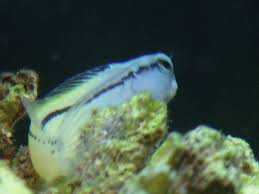
**Introduction**
While tomatoes are a common addition to human diets, their safety for feline consumption warrants careful consideration. This article explores potential toxins that may be present in tomatoes and examines how they can impact the health of our feline friends.
**1. Solanine Content in Green Tomatoes**
One of the primary concerns associated with tomatoes and cats is the presence of solanine, a natural toxin found in nightshade plants. Green tomatoes, in particular, contain higher levels of solanine. Ingesting solanine can lead to various health issues in cats.
**2. Potential Health Risks**
**Gastrointestinal Distress:**
– Ingesting solanine can result in gastrointestinal distress, including vomiting and diarrhea.
**Neurological Symptoms:**
– In severe cases, excessive consumption of solanine may lead to neurological symptoms such as tremors or seizures.
**Cardiovascular Complications:**
– Solanine toxicity can affect the cardiovascular system, leading to irregular heartbeats and respiratory difficulties.
**3. Allergic Reactions and Sensitivities**
Apart from solanine, tomatoes contain other compounds that may trigger allergic reactions or sensitivities in cats. Itchy skin, swelling, or respiratory distress can be indicators of an adverse response to certain components in tomatoes.
**4. Importance of Ripe Tomatoes**
Ripe tomatoes generally have lower solanine content compared to green ones. However, it’s crucial for cat owners to exercise caution and avoid allowing their cats access to unripe tomatoes or any parts of the plant, including stems and leaves.
**5. Pet-Proofing Your Home**
To mitigate the risk of tomato-related toxicity:
– **Secure Unripe Tomatoes:** Store green or unripe tomatoes in locations inaccessible to cats.
– **Dispose of Green Parts:** When using tomatoes, ensure that green parts, including stems and leaves, are properly disposed of in a covered trash bin.
**6. Veterinary Consultation**
If a cat exhibits symptoms of tomato toxicity or if there are concerns about potential exposure, seeking prompt veterinary attention is essential. Veterinarians can provide appropriate care, including supportive measures and interventions to address specific symptoms.
**7. Conclusion: Balancing Treats with Caution**
In conclusion, while ripe tomatoes may pose minimal risks, the higher solanine content in green tomatoes necessitates caution when it comes to sharing this fruit with feline companions. Understanding the potential toxins in tomatoes and their effects on cat health is crucial for responsible pet ownership. Balancing treats with caution ensures that cats can enjoy a safe and healthy lifestyle. Always consult with a veterinarian if there are concerns about a cat’s exposure to potentially harmful substances.









